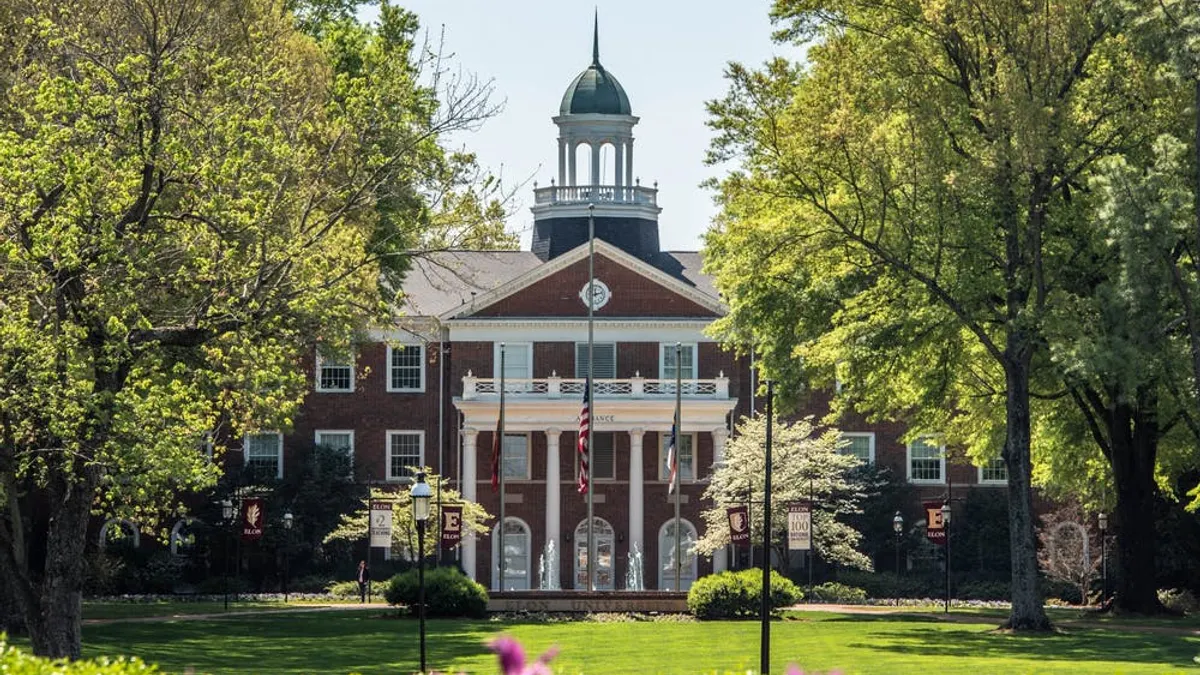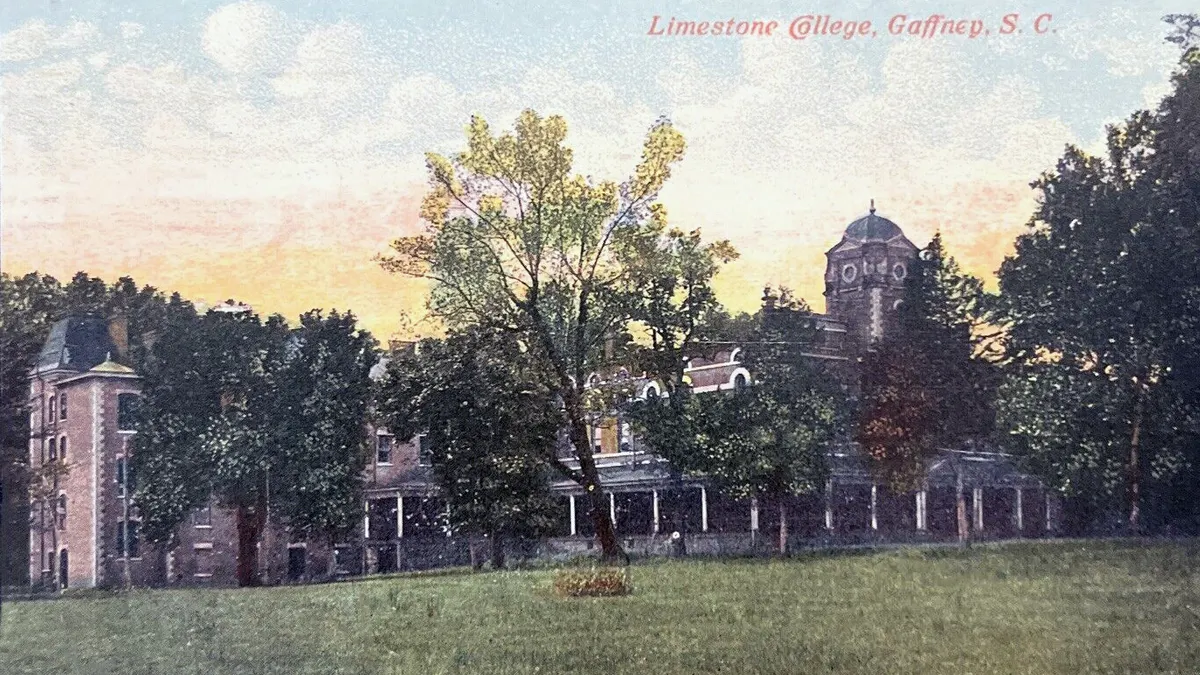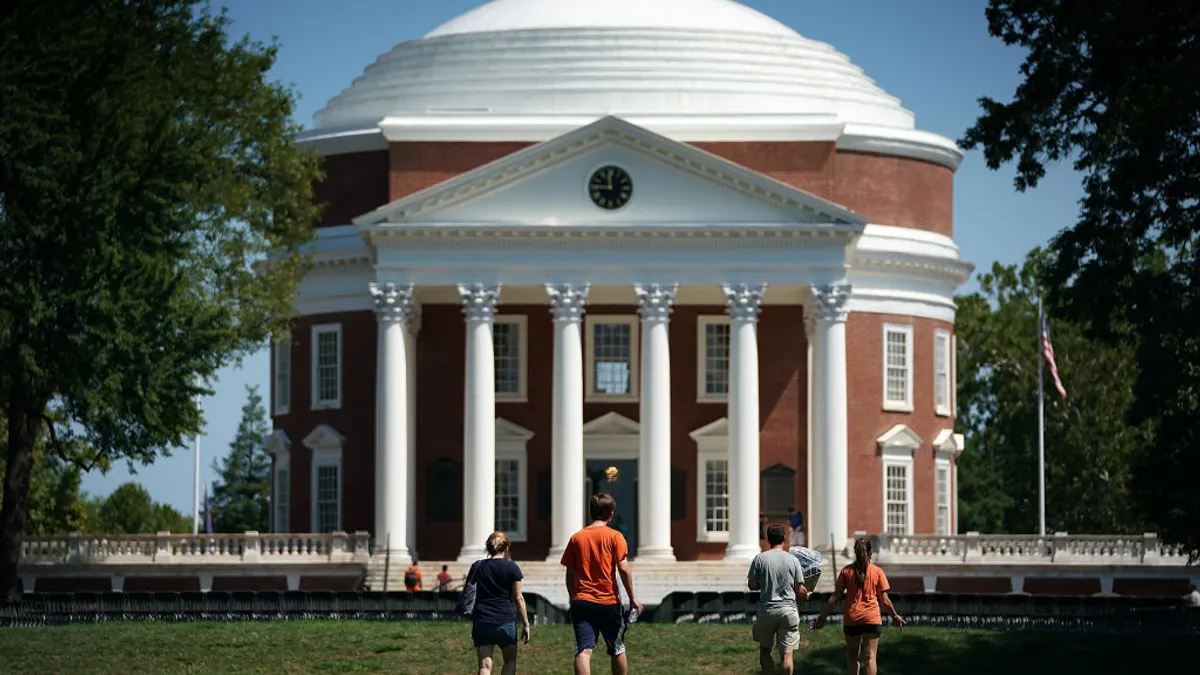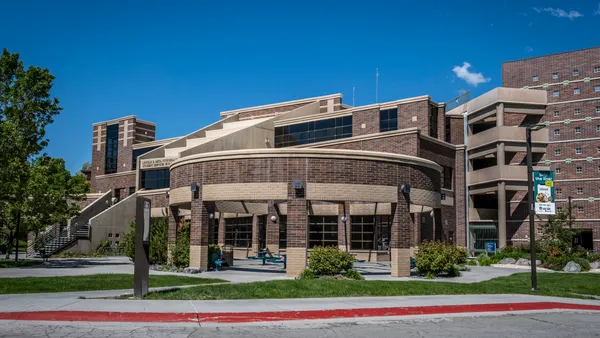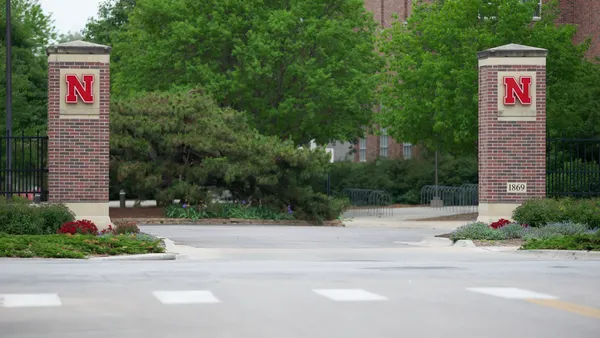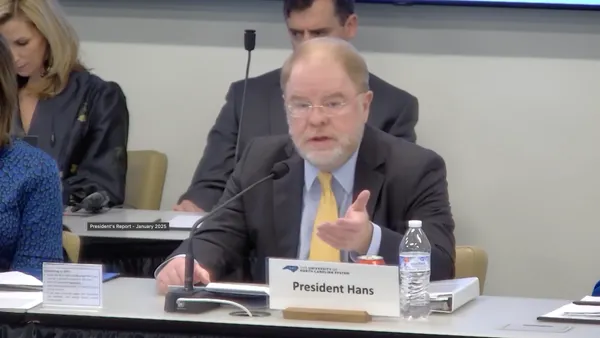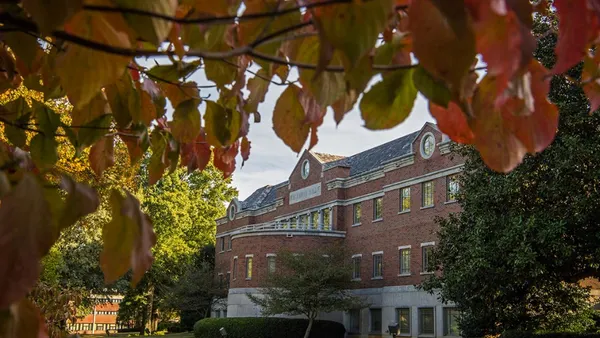Dive Brief:
- Elon University’s chapter of the American Association of University Professors is seeking more faculty involvement in the merger process as the institution looks to take over Queens University of Charlotte.
- In a statement Wednesday, the group described faculty as being blindsided by the merger announcement in September and left out of the planning process. They called for faculty to elect representatives on integration teams and for officials to formally include of the universities’ faculty councils in merger advising.
- The Elon AAUP also said faculty should have a role in deciding whether to formally approve the merger. The two private nonprofits expect their boards to approve final parameters in November.
Dive Insight:
Elon and Queens, about 115 miles away from each other in North Carolina, said last month that their combination “creates new advantages of scale, bringing together resources, faculty expertise, research capacity and student services across both universities.”
They also said their merger would accelerate the creation of new programs meant to address the Charlotte area’s workforce needs, such as a growing shortage of nurse practitioners, physician assistants and lawyers and a rising demand for graduate offerings.
Since that announcement, Elon has said hundreds of employees, students and other stakeholders have attended town hall events about the combination and listening sessions and that officials are using their feedback to shape the plan. It has also seen public pushback from faculty, students and alumni.
Faculty feedback has been “important to the extensive work of a team with representatives of both campuses discussing questions related to the academics, operations, and programming of a merged institution,” the university said Thursday in an emailed statement.
But the university’s AAUP chapter said faculty need a larger, more formal role in the process.
“Shared governance is not a courtesy; it is a cornerstone of higher education and a safeguard for academic quality,” the faculty group said in its statement, which was published by Elon’s student news organization. “It only functions when faculty are partners in major institutional decisions.”
The chapter said officials didn’t consult with Elon’s academic council before the merger announcement. That’s despite stipulations in the university’s faculty handbook for the council to “advise the President on the setting of priorities and the planning of long-range goals for the University.”
Going forward, Elon’s AAUP called for a “meaningful” advisory role for the full council and its Queens counterpart on the combination. They acknowledged scheduled meetings that included the chairs of those bodies, but the Elon AAUP pushed for the full involvement of the councils.
With a fleshed-out merger plan still to be approved, the Elon AAUP is pressing for faculty to have a say in the ultimate decision.
“If faculty will be called upon to help make the merger a success, then faculty should be included in the decision of both institutions to move forward with the merger,” the group said.
In its Thursday statement, the university said, “There have been, and will continue to be, opportunities for Elon faculty, in their individual capacities and through involvement with Elon’s Academic Council, to participate in strategic conversations as work progresses toward a final decision by the boards of trustees of Elon and Queens.”
Elon is the larger institution of the two, with 7,207 students in fall 2023, an increase of 3.1% from 2018. Queen’s fall 2023 headcount of 1,846 students was a 27.2% decline from five years earlier.
Elon is also on firmer financial footing. It had $1.2 billion in assets in fiscal 2024, more than three times that of Queens. That year, Elon logged a $70.4 million operating surplus while Queens reported an $8.7 million deficit. However, in a FAQ page on the merger, the universities said that the combination plan is “not driven by crisis.”


